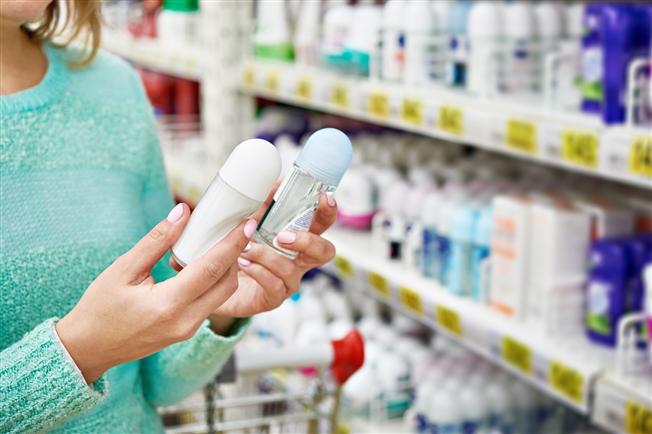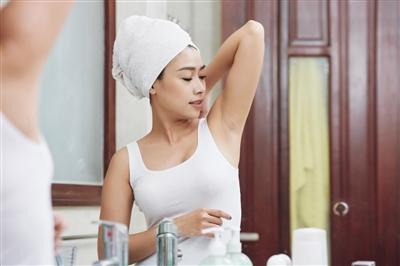Is natural deodorant better for you?

Over the past several years, you’ve probably noticed some new deodorant options in your grocery aisle. Now, instead of promoting a new fragrance or an odor-free guarantee, brands are promoting a more ‘natural’ product and boasting a list of ‘clean ingredients’. And consumers are taking notice.
According to a recent report, the global organic deodorant market is expected to grow 12 percent over the next four years. This isn’t a trend that’s exclusive to cosmetics—consider, for example, how the demand for healthy, organic foods has led to more farmers’ markets and specialty grocery stores. From food to cosmetics, people are trying to make the healthiest decisions for themselves and their families.
With such a notable increase in the popularity of natural deodorant, you might be wondering if you should make the switch too. After all, isn’t it healthier for you? That depends, says dermatologist Laura Schilling, MD.
“There is certainly no harm in switching to a natural deodorant, but there are still many misconceptions about why you should switch,” says Dr. Schilling, who practices at Paoli Hospital, part of Main Line Health.
Before you add a new product to your morning routine, here’s what you need to know about traditional and natural deodorants.
Antiperspirant vs. deodorant: What’s the difference?

Deodorant is a cosmetic that prevents odor. Anti-perspirant can prevent odor, too, but its primary purpose is to help reduce sweating, often using aluminum as its active ingredient. The aluminum works by clogging the pores in your armpits to control sweating and underarm wetness. For some people who don’t sweat heavily, anti-perspirant isn’t a priority.
Is the aluminum in anti-perspirant dangerous?
One of the reasons behind a shift to natural deodorant is concerns about how a product that many of us use and apply to our bodies every day is ultimately affecting our health.
Several studies have suggested that anti-perspirants that contain aluminum could be one of the reasons that breast cancer develops in the upper right quadrant of the breast…near the armpit. However, current research and evidence fail to show a direct link between deodorant or anti-perspirant use and an increase in breast cancer risk.
“Like anything else we apply or consume, aluminum has the potential to impact our health. But with the typical amount of anti-perspirant applied to the armpits, there is not enough aluminum absorbed into the bloodstream or body for it to pose a serious cancer risk,” explains Dr. Schilling.
There have also been concerns about increased Alzheimer’s disease risk due to aluminum, but research has been similarly inconclusive. And remember: your deodorant or anti-perspirant isn’t the only thing you use or eat that contains aluminum—it’s also found in some of the foods we eat and the cookware we use.
What makes a natural deodorant, natural?
Natural deodorants are those that are, at a minimum, aluminum-free. Instead, these products use ingredients like baking soda or arrowroot powder to absorb sweat. Some natural deodorants might also substitute essential oils for chemical ingredients to add fragrance.
And remember: Even though a deodorant brand may be aluminum-free, it may still contain other artificial colors and parabens that can irritate the skin. If you’re looking for the cleanest possible product, look for one with a short list of ingredients.
So, should I use a natural deodorant?

“There are no health risks that are so great that you need to change deodorant, but you may prefer a natural brand if you have sensitive skin that’s easily irritated by some common ingredients in cosmetic products,” she says.
You might also make the change simply because you want to! Fortunately, you can find many natural deodorant options at grocery stores, convenience stores, beauty supply shops and even online.
Main Line Health serves patients at hospitals and health centers throughout the western suburbs of Philadelphia. To schedule an appointment with a specialist at Main Line Health, call 1.866.CALL.MLH (225.5654).
 Content you want, delivered to your inbox
Content you want, delivered to your inbox
Want to get the latest health and wellness articles delivered right to your inbox?
Subscribe to the Well Ahead Newsletter.
